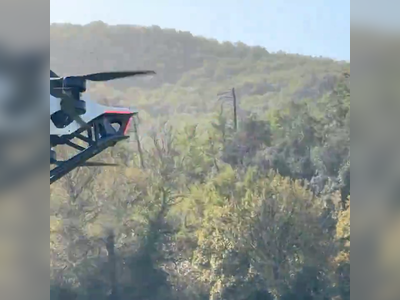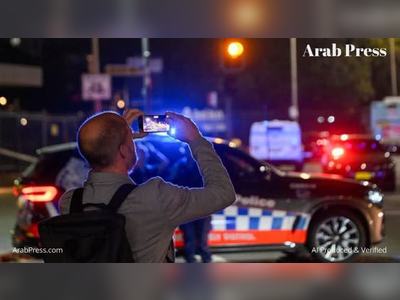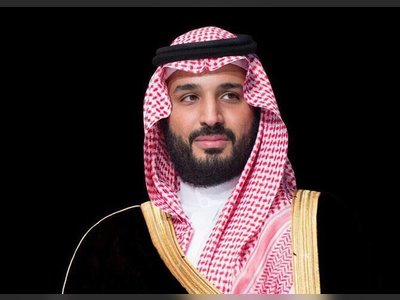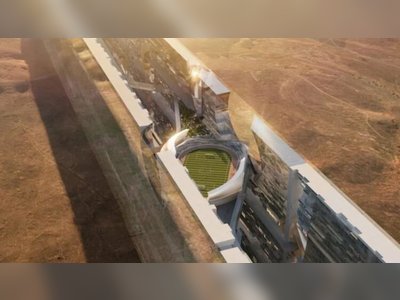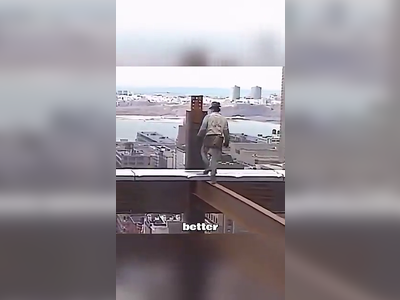
Israeli Military Plans Intensified Operations in Gaza Amid Ongoing Conflict
Prime Minister Netanyahu announces a significant escalation in military operations following cabinet approval.
Israeli Prime Minister Benjamin Netanyahu announced that the Israeli Defense Forces (IDF) would intensify military operations in the Gaza Strip, stating that this new assault would be "strong and intense".
This declaration follows a cabinet meeting where members unanimously agreed to expand the ground operation and maintain the blockade on humanitarian assistance entering the area.
In a video message posted on social media, Netanyahu emphasized that Israeli forces would not conduct limited strikes and then withdraw from the territory.
Instead, he indicated an intent to occupy the area, although he did not specify the extent of land that would come under Israeli control.
He stated, "We will not send reserve forces to temporarily control the ground and then leave, limiting ourselves to specific raids.
That will not happen." The Prime Minister added that Gaza residents would be relocated for their protection during the offensive, yet he did not provide details on where or how this would occur.
Reports suggest that the Israeli plan may involve relocating residents southward on the road between Rafah and Khan Younis, where humanitarian aid would be distributed under Israeli security.
Netanyahu asserted that the expanded military operation would aid in the retrieval of hostages.
He echoed the sentiments of Israeli Chief of Staff Eyal Zamir, who indicated support for the expansion of military activities.
"We convened late into the night on Sunday and decided to launch an intensive military operation in Gaza, based on the Chief of Staff's recommendation," Netanyahu said.
Regarding the Israeli government's decision not to establish a commission of inquiry into the failures of October 7, 2023, Netanyahu remarked that military officers and leaders should not be preoccupied with legal defenses while a war is ongoing.
He expressed support for a future investigation into the events of October 7 but suggested that such an inquiry should take place after the conflict concludes.
He further emphasized that any governmental inquiry would need representation from both the ruling coalition and the opposition.
Earlier reports indicated that the government had decided against forming a governmental commission to investigate the events of October 7 at this stage, given the ongoing expansion of the war in Gaza.
However, sources indicated that for the first time, there may be a preliminary willingness within the government to establish a formal inquiry, learning from previous failures.
While discussions around the potential inquiry were ongoing, Netanyahu also noted the necessity of legislative adjustments regarding how committee members are appointed, implying that this process might prolong the establishment of an inquiry.
On the operational front, the Israeli cabinet approved a comprehensive military strategy known as "Gideon's Chariots".
However, the execution of this operation has been postponed until after a scheduled visit by U.S. President Donald Trump to the region in mid-May.
Israel has maintained a stringent blockade on Gaza for over two months, halting the entry of international aid since early March, despite warnings from international and human rights organizations about an impending famine.
The blockade has led to widespread destruction of agricultural and food infrastructure in the region, obstructing relief convoys and targeting food distribution centers.
This declaration follows a cabinet meeting where members unanimously agreed to expand the ground operation and maintain the blockade on humanitarian assistance entering the area.
In a video message posted on social media, Netanyahu emphasized that Israeli forces would not conduct limited strikes and then withdraw from the territory.
Instead, he indicated an intent to occupy the area, although he did not specify the extent of land that would come under Israeli control.
He stated, "We will not send reserve forces to temporarily control the ground and then leave, limiting ourselves to specific raids.
That will not happen." The Prime Minister added that Gaza residents would be relocated for their protection during the offensive, yet he did not provide details on where or how this would occur.
Reports suggest that the Israeli plan may involve relocating residents southward on the road between Rafah and Khan Younis, where humanitarian aid would be distributed under Israeli security.
Netanyahu asserted that the expanded military operation would aid in the retrieval of hostages.
He echoed the sentiments of Israeli Chief of Staff Eyal Zamir, who indicated support for the expansion of military activities.
"We convened late into the night on Sunday and decided to launch an intensive military operation in Gaza, based on the Chief of Staff's recommendation," Netanyahu said.
Regarding the Israeli government's decision not to establish a commission of inquiry into the failures of October 7, 2023, Netanyahu remarked that military officers and leaders should not be preoccupied with legal defenses while a war is ongoing.
He expressed support for a future investigation into the events of October 7 but suggested that such an inquiry should take place after the conflict concludes.
He further emphasized that any governmental inquiry would need representation from both the ruling coalition and the opposition.
Earlier reports indicated that the government had decided against forming a governmental commission to investigate the events of October 7 at this stage, given the ongoing expansion of the war in Gaza.
However, sources indicated that for the first time, there may be a preliminary willingness within the government to establish a formal inquiry, learning from previous failures.
While discussions around the potential inquiry were ongoing, Netanyahu also noted the necessity of legislative adjustments regarding how committee members are appointed, implying that this process might prolong the establishment of an inquiry.
On the operational front, the Israeli cabinet approved a comprehensive military strategy known as "Gideon's Chariots".
However, the execution of this operation has been postponed until after a scheduled visit by U.S. President Donald Trump to the region in mid-May.
Israel has maintained a stringent blockade on Gaza for over two months, halting the entry of international aid since early March, despite warnings from international and human rights organizations about an impending famine.
The blockade has led to widespread destruction of agricultural and food infrastructure in the region, obstructing relief convoys and targeting food distribution centers.
